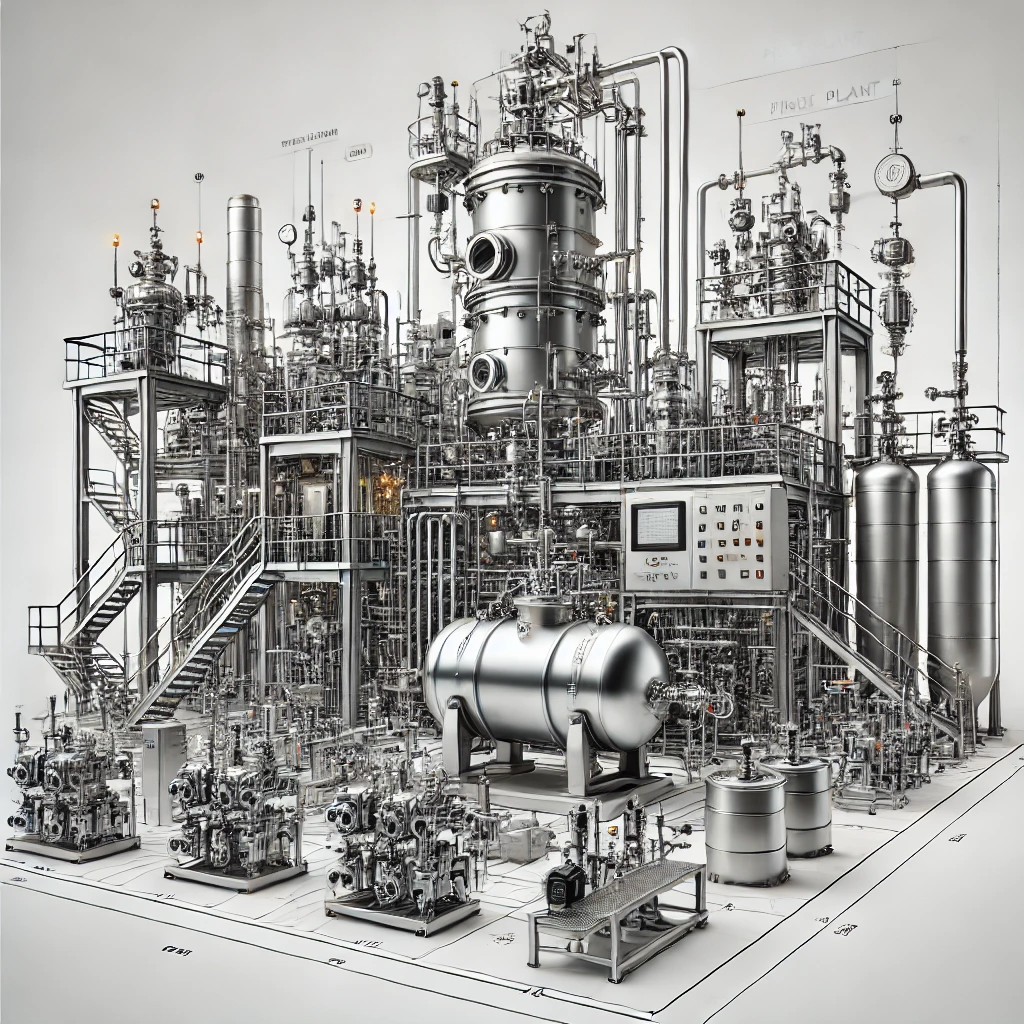Pilot Plant Systems: Bridging the Gap Between Research and Production
In the pharmaceutical industry, pilot plant systems play a crucial role in bridging the gap between research and full-scale production. These systems are designed to replicate the conditions and processes of large-scale manufacturing, allowing pharmaceutical companies to test and optimize their production methods before investing in expensive equipment and resources. This article will highlight the importance of pilot plant systems in the pharmaceutical industry and explore their role in sterilization processes.

Importance of Pilot Plant Systems
Pilot plant systems serve as a vital link between the laboratory-scale research and the commercial production of pharmaceutical products. They provide a platform for scientists and engineers to evaluate the feasibility, scalability, and efficiency of various manufacturing processes. By simulating the conditions of full-scale production, pilot plant systems enable pharmaceutical companies to identify and address potential challenges and bottlenecks early on, saving both time and resources.
Bridging the Gap in Sterilization Processes
Sterilization is a critical step in the pharmaceutical industry to ensure the safety and efficacy of medical products. Pilot plant systems play a significant role in developing and optimizing sterilization processes. These systems allow researchers to test different sterilization methods, such as autoclaves, and assess their effectiveness in eliminating microorganisms while preserving the integrity of the pharmaceutical products.
Autoclaves in Sterilization
Autoclaves are widely used in the pharmaceutical industry for sterilizing equipment, containers, and materials. These high-pressure steam sterilizers are capable of eliminating a wide range of microorganisms, including bacteria, viruses, and fungi. Pilot plant systems provide a controlled environment for testing the performance of autoclaves and optimizing their operating parameters. This ensures that the sterilization process achieves the desired level of microbial reduction without compromising the quality of the pharmaceutical products.
Advantages of Pilot Plant Systems
Cost Savings: By conducting experiments and process optimizations in pilot plant systems, pharmaceutical companies can avoid costly mistakes and minimize the risk of failure during full-scale production. This leads to significant cost savings in terms of raw materials, energy consumption, and equipment maintenance.
Process Optimization: Pilot plant systems allow for iterative testing and refinement of manufacturing processes. This iterative approach helps identify and eliminate inefficiencies, leading to improved productivity and product quality.
Scale-up Confidence: By successfully demonstrating the scalability of a manufacturing process in a pilot plant system, pharmaceutical companies can gain confidence in their ability to replicate the process on a larger scale. This reduces the risk associated with scaling up production and ensures a smooth transition from research to full-scale manufacturing.
Regulatory Compliance: Pilot plant systems provide an opportunity to validate manufacturing processes and ensure compliance with regulatory requirements. By conducting thorough testing and documentation in the pilot plant, pharmaceutical companies can streamline the regulatory approval process for their products.
Pilot plant systems play a vital role in bridging the gap between research and full-scale production in the pharmaceutical industry. They enable pharmaceutical companies to optimize manufacturing processes, including sterilization methods, while minimizing risks and costs. By investing in pilot plant systems, companies can ensure the successful transition from laboratory-scale research to commercial production, ultimately delivering safe and effective pharmaceutical products to the market.
Learn More
For more information on our sustainable practices and equipment offerings, visit our pages on Reactors and Autoclaves, Process Vessel and Tanks, Hydrogenators, Pilot Plant Systems, Distillation Columns, Heat Exchangers and Condensers, and Large Size Pipe and Pipe Fittings.
Check out this Embracing Sustainability: The Eco-Friendly Applications of Exotic Metals
Check out this: Embracing Sustainability: The Eco-Friendly Applications of Exotic Metals
Check out this: The Importance of Material Selection in Chemical Equipment Manufacturing
Check out this: Pioneering the Future of Mining: Extracting Exotic Metals Sustainably
Check out this: The Role of High-Quality Reactors in Pharmaceutical Manufacturing
Check out this: The Future of Exotic Metals in Emerging Applications and Technological Advancements
Check out this: Ensuring Reliability: The Critical Role of Quality Assurance in Large Size Pipe and Pipe Fittings
Check out this: Working with Exotic Metals: Fabrication Techniques and Safety Tips

